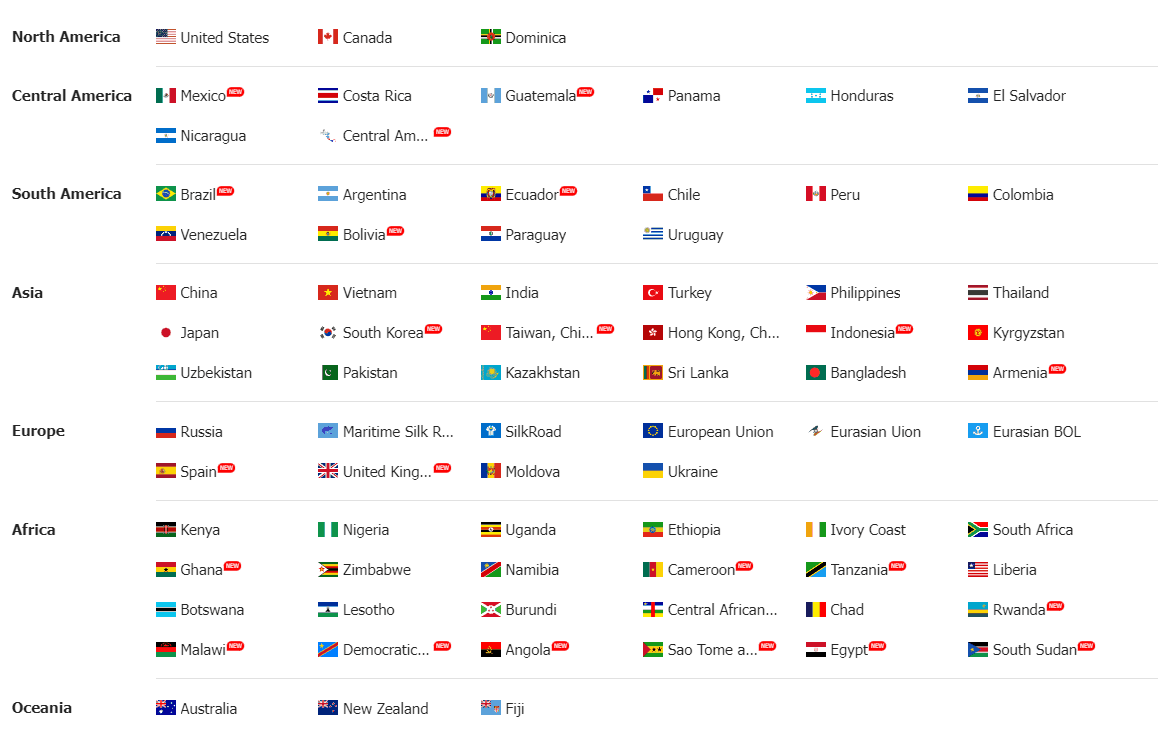 Trade Data
Trade Data
 14-08-2024
14-08-2024
Turkey, strategically located at the crossroads of Europe and Asia, has long been a significant player in global trade. Its robust economy, diversified industries, and growing consumer market make it an attractive destination for imports. This article provides an overview of Turkey's import data, highlighting key trends, major import categories, and the countries that contribute the most to its import economy.

Key Trends in Turkey's Import Data
Over the past decade, Turkey's import volume has shown a steady increase, reflecting the country's expanding industrial base and growing consumer demand. The import data indicates a rising demand for raw materials, machinery, and consumer goods, driven by the country's ongoing industrialization and modernization efforts.
Turkey's import figures have fluctuated due to global economic conditions, exchange rate volatility, and geopolitical factors. For example, the depreciation of the Turkish lira has made imports more expensive, affecting the overall volume and composition of imported goods. However, despite these challenges, Turkey continues to maintain a strong import market, underpinned by its strategic location, large population, and diversified economy.
(>> Click to check Turkey's import data <<)
Major Import Categories
Turkey's imports are diverse, spanning various sectors of the economy. Some of the major import categories include:
Energy Resources: Turkey is heavily dependent on imported energy resources, particularly crude oil and natural gas. These imports are crucial for powering the country's industries and meeting the energy needs of its growing population.
Machinery and Equipment: As Turkey continues to industrialize, there is a significant demand for machinery and equipment. This category includes industrial machinery, electrical machinery, and transport equipment, which are essential for the country's manufacturing and infrastructure development.
Chemical Products: Turkey imports a wide range of chemical products, including pharmaceuticals, plastics, and fertilizers. These imports support the country's agriculture, healthcare, and manufacturing sectors.
Iron and Steel: The construction and automotive industries in Turkey drive significant imports of iron and steel products. These materials are vital for building infrastructure, manufacturing vehicles, and producing industrial goods.
Textiles and Apparel: Although Turkey is a major exporter of textiles, it also imports raw materials such as cotton, yarn, and synthetic fibers to support its thriving textile industry.
(>> Click to check Turkey's import data <<)
Key Import Partners
Turkey's import market is characterized by its diverse range of trading partners. Some of the key countries that supply goods to Turkey include:
China: China is one of Turkey's largest trading partners, supplying a wide range of goods, including electronics, machinery, and textiles. The trade relationship between the two countries has grown significantly in recent years, with China playing a vital role in meeting Turkey's demand for consumer goods and industrial inputs.
Germany: Germany is another major supplier to Turkey, particularly in the areas of machinery, automobiles, and chemical products. The strong trade ties between the two countries are underpinned by Germany's reputation for high-quality engineering and manufacturing.
Russia: Russia is a key supplier of energy resources to Turkey, particularly natural gas. The two countries have developed a close energy partnership, with Russia playing a critical role in meeting Turkey's energy needs.
Italy: Italy exports a wide range of goods to Turkey, including machinery, textiles, and chemical products. The trade relationship between Turkey and Italy is bolstered by their shared Mediterranean heritage and close economic ties.
United States: The United States is a significant supplier of machinery, chemical products, and agricultural goods to Turkey. Despite occasional trade tensions, the two countries maintain a strong trading relationship, with the U.S. playing an important role in meeting Turkey's demand for high-tech equipment and agricultural products.
(>> Click to check Turkey's import data <<)
Conclusion
Turkey's import data reflects the country's dynamic and growing economy, with a diverse range of goods flowing into the country to support its industrial base and consumer market. Despite challenges such as currency fluctuations and geopolitical tensions, Turkey remains an attractive destination for international trade. As the country continues to develop, its import needs are likely to evolve, presenting new opportunities for global suppliers.
Tendata iTrader compiles trade data from 218 countries and provides detailed
information on over 130 million import-export enterprises worldwide.
With a daily influx of 10 billion trade records, Tendata efficiently delivers contact details for over 700 million top-level executives and decision-makers in the import-export industry through advanced filtering. This includes email addresses, phone numbers, social media profiles, and more. Additionally, we offer synchronized company profiles, product images, and website links, along with 19 types of visual reports. These tools assist foreign trade enterprises in precise market positioning and thorough market analysis, enabling you to quickly find the exact buyers and suppliers you need.
(>> Visit the Official Shanghai Tendata Website for More Details <<)

Category
Leave Message for Demo Request or Questions


 T-info
T-info T-discovery
T-discovery

 My
Tendata
My
Tendata Market Analysis
Market Analysis Customer
Development
Customer
Development Competitor
Monitoring
Competitor
Monitoring Customer Relationship
Customer Relationship




































































































































